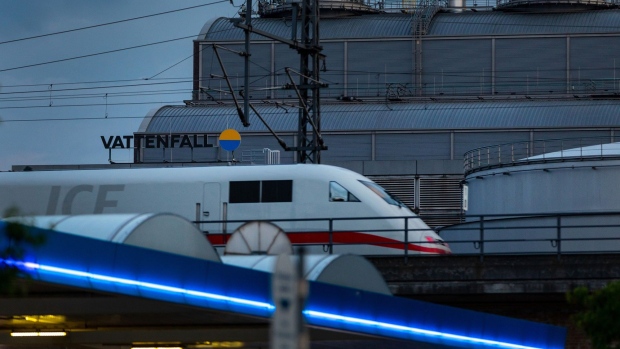Jun 24, 2022
European Gas Set for Second Weekly Gain on Russia Supply Squeeze
, Bloomberg News

(Bloomberg) -- European natural gas prices headed for a second straight weekly advance as Russia’s deep supply cuts unsettle markets and force governments into policy u-turn to bring back coal power stations.
Benchmark futures are up about 12% this week. The crisis is centered around European powerhouse Germany, which has moved to the second-highest phase of an emergency plan, and warned the cuts could trigger a Lehman Brothers-like collapse of the energy market.
Also read: German Utilities Prepare to Turn on Coal Plants Amid Gas Crisis
The situation could get worse in the next few weeks. The major Nord Stream pipeline, which is currently using just 40% of its capacity to supply to Europe, is scheduled to be fully shut for maintenance next month. German Economy Minister Robert Habeck has raised doubts the country’s target of getting storage sites 90% full by November can be met if flows through the pipeline remain curbed.
The impact is reverberating through the industry and threatening economic output in the region. Europe’s biggest chemicals maker BASF SE, which relies on gas for production and electricity, said it may cut output as it expects further price rises. BMW, the world’s biggest luxury carmaker that runs combined heat and power plants at many of its sites, is also taking steps to reduce consumption.
“Germany has become the hotspot of the EU energy crisis following Russia’s invasion of Ukraine,” Henning Gloystein, director for energy, climate and resources at Eurasia Group, said in a note. “A total supply cut from Russia to Germany would therefore risk the security of supply throughout the EU, possibly triggering a recession and, in the worst case, widespread winter energy rationing.”
Dutch front-month gas futures, the European benchmark, slipped 1% to 132 euros per megawatt-hour at 9:12 a.m. in Amsterdam, trimming the weekly gain. Prices have climbed more than 50% since the Nord Stream flows were curtailed. The UK equivalent contract rose 4.9%.
©2022 Bloomberg L.P.






